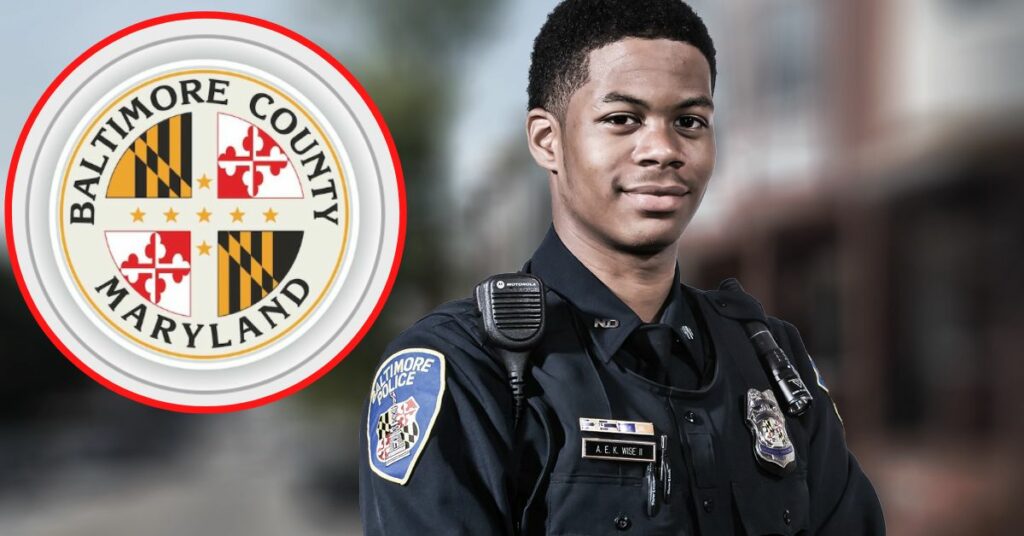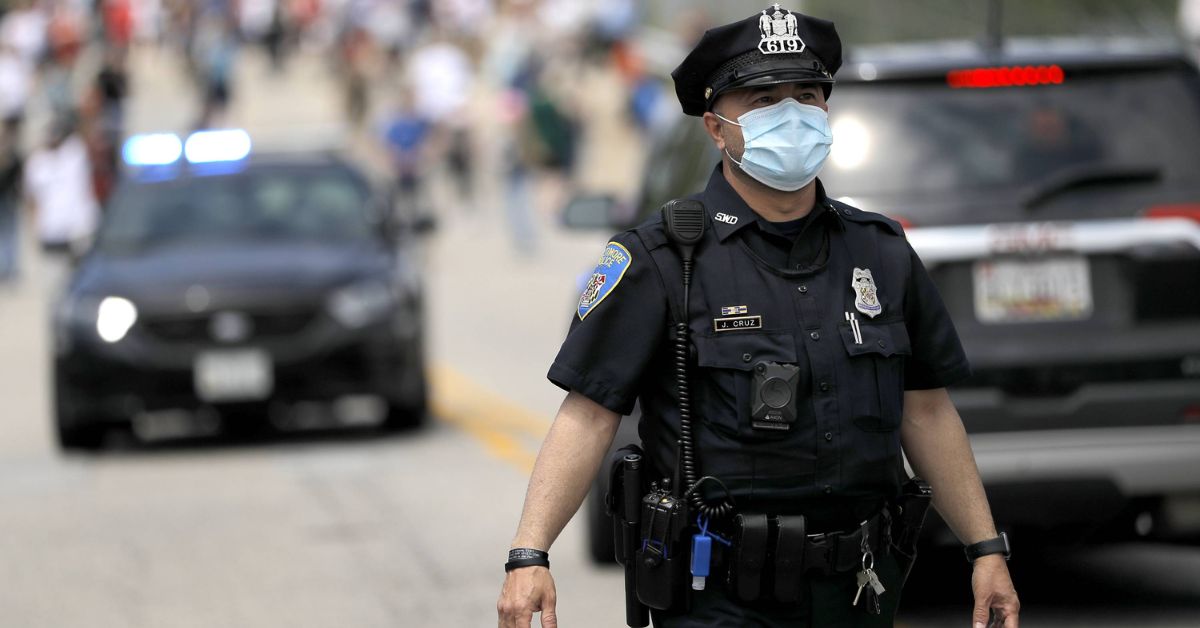If you're into monitoring public safety or just curious about what's happening in your community, the Baltimore County Police Scanner is your go-to tool. It offers real-time updates on police activity, emergency responses, and more. Whether you're a hobbyist, journalist, or simply someone who wants to stay informed, this scanner provides a unique window into the workings of law enforcement in Baltimore County. So, buckle up, because we’re diving deep into everything you need to know about it!
Nowadays, staying informed has never been more important, and the Baltimore County Police Scanner gives you an edge. Imagine hearing live updates about incidents as they happen—no delays, no filters. It’s like being part of the action without actually being there. For enthusiasts, this is gold. For everyday citizens, it’s peace of mind knowing what’s going on around them.
But hold up—before we get too far ahead of ourselves, let’s break down what exactly a police scanner is and why it matters. This isn't just some random gadget; it's a powerful tool that bridges the gap between public safety and community awareness. So, whether you're tuning in for fun or function, stick around because we’ve got all the info you need right here.
Read also:Discover Exclusive Content Camilla Araujos Official Onlyfans
What Exactly is a Police Scanner?
A police scanner is essentially a radio receiver designed to pick up transmissions from emergency services, including police, fire departments, and ambulance services. Think of it as a hotline to the world of public safety. In Baltimore County, these scanners allow residents to stay updated on police activities, traffic stops, and emergency responses as they happen.
But here's the kicker—it’s not just about listening in on cops and robbers. A police scanner can help you stay safe by alerting you to nearby incidents or road closures. For example, if there’s a major accident on I-695, you’ll know before your GPS even catches up. That’s pretty neat, right?
Now, let’s talk about why this matters in Baltimore County specifically. With its bustling neighborhoods and diverse communities, staying informed is crucial. Whether you live in Towson, Catonsville, or anywhere else in the county, having access to real-time updates can make all the difference.
Why Should You Care About the Baltimore County Police Scanner?
Let’s face it—Baltimore County is no stranger to action. From routine patrols to high-profile investigations, there’s always something happening. And that’s where the police scanner comes in. It’s your direct line to what’s going on in your backyard.
For starters, it’s a great tool for personal safety. If you hear about a break-in nearby, you can take extra precautions. If there’s a traffic jam on your commute, you can reroute before you even leave the house. Plus, it’s just plain fascinating to hear how law enforcement operates in real time.
Here’s a quick list of reasons why you should care:
Read also:Rudy From The Cosby Show A Comprehensive Look At The Beloved Character
- Real-time updates on police activity
- Early warnings about emergencies
- Insight into how law enforcement works
- Community awareness and preparedness
And hey, if you’re into true crime or just curious about the behind-the-scenes of law enforcement, this is the ultimate resource. It’s like binge-watching a crime drama, but live and unscripted.
How Does the Police Scanner Work?
Alright, so you’re sold on the idea, but how does it actually work? Police scanners operate on specific radio frequencies that emergency services use to communicate. These frequencies are public, meaning anyone with the right equipment can tune in. In Baltimore County, the police department uses a system called P25, which allows for encrypted and non-encrypted communications.
Here’s the deal: most routine transmissions are unencrypted, so you can listen in without any issues. However, sensitive information might be encrypted to protect privacy and security. Don’t worry, though—there’s still plenty to hear!
Modern scanners come in two main forms: hardware devices and smartphone apps. The hardware option is great for dedicated users, while apps are perfect for casual listeners. Both options give you access to the same frequencies, so it’s all about what suits your needs.
Choosing the Right Scanner
When it comes to choosing a scanner, there are a few things to consider. First, decide whether you want a physical device or an app. Hardware scanners are more robust and offer better range, but they can be pricey. Apps, on the other hand, are convenient and often free, though they rely on your phone’s internet connection.
Here’s a quick rundown of popular options:
- Uniden BC25GT: A top-rated handheld scanner with excellent range and features.
- Radioreference App: A user-friendly app that offers live feeds from across the country, including Baltimore County.
- Police Scanner 911: Another great app with a simple interface and reliable performance.
Whatever you choose, make sure it supports the frequencies used by Baltimore County Police. A quick Google search or a visit to the manufacturer’s website should give you all the info you need.
Legalities of Using a Police Scanner
Before you start tuning in, it’s important to understand the legalities. In most states, including Maryland, it’s perfectly legal to own and use a police scanner. However, there are some rules you need to follow:
- You cannot use the information for illegal purposes.
- You cannot interfere with police communications.
- You must respect privacy and not share sensitive information.
In Baltimore County, the law enforcement community generally supports public access to scanners as a way to promote transparency and safety. Just remember to use it responsibly and respectfully.
Common Misconceptions About Police Scanners
There are a few myths floating around about police scanners that we need to clear up. First, contrary to popular belief, scanners are not illegal. Second, they don’t give you access to every single communication—some channels are encrypted for security reasons. Lastly, using a scanner won’t automatically make you a suspect in a crime—just a curious citizen!
So, if you’ve been hesitating because of these misconceptions, now’s the time to give it a try. Trust us, it’s a game-changer.
Debunking the "Criminal Use" Myth
One of the biggest concerns people have is that criminals use scanners to plan illegal activities. While it’s true that some bad actors might try to exploit the system, the vast majority of scanner users are law-abiding citizens looking to stay informed. Plus, police departments are well aware of this potential issue and take steps to mitigate it, such as encrypting sensitive communications.
In fact, many law enforcement agencies see scanners as a tool for community engagement. By keeping the public informed, they can build trust and foster cooperation. So, don’t let fear hold you back—join the ranks of responsible scanner users!
Setting Up Your Baltimore County Police Scanner
Ready to dive in? Setting up your scanner is easier than you think. Whether you’re using a hardware device or an app, the process is pretty straightforward. Here’s a step-by-step guide:
- Choose Your Device: Decide between a physical scanner or an app based on your needs.
- Download or Purchase: If you’re going the app route, download it from your app store. For hardware, pick up a scanner from a reputable retailer.
- Program Frequencies: Enter the frequencies used by Baltimore County Police. You can find these online or in the scanner’s manual.
- Start Listening: Once everything’s set up, hit the power button and start exploring the world of public safety!
Pro tip: If you’re using an app, consider subscribing to premium features for ad-free listening and enhanced functionality. Trust us, it’s worth it.
Listening Etiquette: Do's and Don'ts
Now that you’re all set up, let’s talk about some basic listening etiquette. Just like any other community, there are rules to follow when using a police scanner. Here’s a quick list:
- Do: Use the information to stay safe and informed.
- Don't: Share sensitive information or interfere with police operations.
- Do: Respect privacy and confidentiality.
- Don't: Use the scanner for illegal purposes.
By following these guidelines, you’ll be a responsible and respectful member of the scanner community. Plus, you’ll avoid any potential legal issues down the line.
Real-Life Stories: How Scanners Helped Baltimore County Residents
To really drive home the value of police scanners, let’s look at some real-life examples. In Baltimore County, residents have used scanners to stay safe and informed in a variety of situations:
- Traffic Alerts: One driver avoided a major accident on I-695 thanks to a scanner update.
- Crime Prevention: A homeowner noticed suspicious activity nearby and called the police after hearing about a nearby break-in on the scanner.
- Community Awareness: A neighborhood group used scanner updates to organize a safety meeting and improve local security measures.
These stories highlight just how powerful this tool can be. Whether you’re avoiding danger or staying informed, a police scanner is an invaluable resource.
Conclusion: Why You Need a Baltimore County Police Scanner
In conclusion, the Baltimore County Police Scanner is more than just a hobbyist’s toy—it’s a vital tool for staying safe and informed. From real-time updates on police activity to early warnings about emergencies, it offers a unique window into the world of public safety. By using it responsibly and respectfully, you can enhance your awareness and contribute to a safer community.
So, what are you waiting for? Dive into the world of police scanners and discover what’s happening in your neighborhood. And don’t forget to share this article with your friends and family—they’ll thank you for it!
Call to Action: Leave a comment below and let us know how you plan to use your police scanner. Or, if you already have one, share your favorite features and tips with the community!
Table of Contents
Baltimore County Police Scanner: Your Ultimate Guide to Real-Time Public Safety Updates
What Exactly is a Police Scanner?
Why Should You Care About the Baltimore County Police Scanner?
How Does the Police Scanner Work?
Legalities of Using a Police Scanner
Common Misconceptions About Police Scanners
Setting Up Your Baltimore County Police Scanner
Listening Etiquette: Do's and Don'ts
Real-Life Stories: How Scanners Helped Baltimore County Residents

